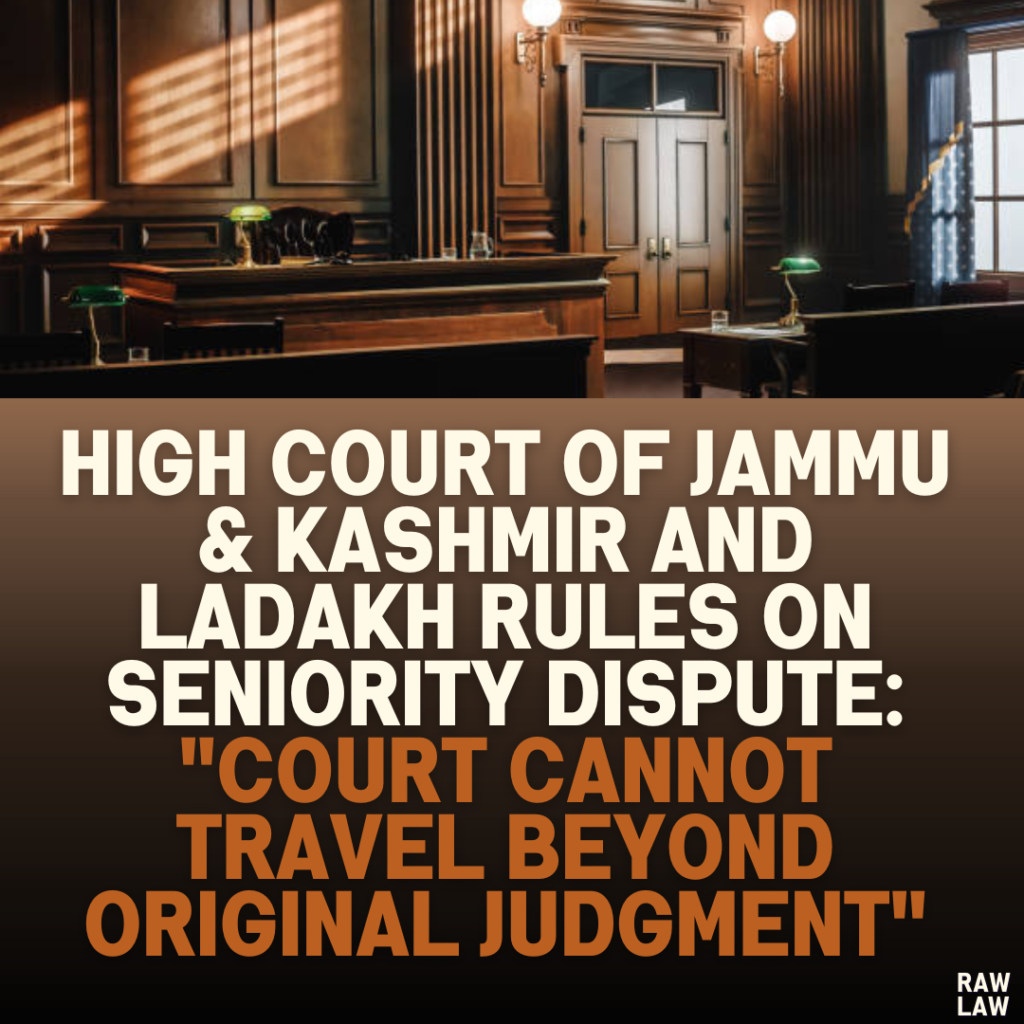Court’s Decision
The High Court dismissed the contempt proceedings filed by the petitioners, concluding that there was no deliberate non-compliance by the respondents regarding the placement of the petitioners in the seniority list. The court emphasized that it cannot modify or amplify the original judgment under contempt jurisdiction.
Facts
- A writ petition was filed by the petitioners in 2017, seeking appointments as Naib Tehsildars with appropriate seniority.
- The writ court allowed the petition in 2018, directing the respondents to issue appointment orders, grant seniority from the same date as similarly situated candidates, and create supernumerary posts if required.
- The respondents appealed, and the Division Bench upheld the appointments but set aside the directions to place the petitioners above 29 selected candidates.
- Following alleged non-compliance with the writ court’s orders, the petitioners filed a contempt petition, which was closed in April 2023 after the respondents assured compliance.
Issues
- Whether the respondents deliberately failed to comply with the writ court’s and Division Bench’s orders regarding seniority placement.
- Whether the court can issue further directions under contempt jurisdiction.
Petitioner’s Arguments
The petitioners argued:
- They were entitled to placement immediately below the 29 selected candidates in the seniority list as per the order dated April 3, 2023.
- The respondents’ placement of the petitioners at serial numbers 85-A to 85-D was in violation of court orders.
Respondent’s Arguments
The respondents contended:
- The Division Bench had not directed the placement of the petitioners immediately below the 29 selected candidates.
- The substantive appointments of the petitioners occurred much later than those in the earlier decided cases, such as Inamul Haq Hajjam’s case, thus affecting their seniority.
- The petitioners were seeking modifications beyond the original judgments.
Analysis of the Law
- The court reiterated that contempt jurisdiction is limited to examining compliance with the original judgment and does not permit issuing supplementary or incidental directions.
- Reference was made to Senthur v. T.N. Public Service Commission, where the Supreme Court held that courts in contempt proceedings cannot go beyond the scope of the original order.
Precedent Analysis
- Senthur v. T.N. Public Service Commission: Affirmed that courts cannot extend the scope of directions under contempt jurisdiction.
Court’s Reasoning
The court reasoned:
- The petitioners’ claim for placement immediately below the 29 candidates was inconsistent with the Division Bench judgment.
- The respondents’ actions complied with the Division Bench directions, which did not mandate such placement.
- The contempt petition could not be used to alter or amplify the original judgment.
Conclusion
The court closed the contempt proceedings, finding no deliberate non-compliance. It permitted the petitioners to pursue other appropriate remedies under the law if so advised.
Implications
This judgment reinforces the principle that courts cannot expand or reinterpret original judgments under contempt jurisdiction. It highlights the limitations of contempt proceedings in addressing disputes over compliance interpretations.



